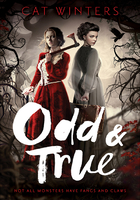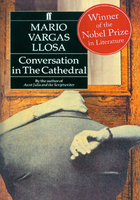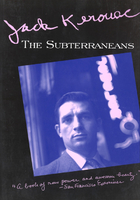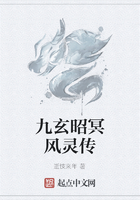9:20 A.M., MONDAY, JANUARY 28 1974—SINGAPORE
Nick loved Singapore, but he wouldn't see it on this trip. Something eccentric happened to him every time he got to Singapore. The last time, there had been an epidemic of over four hundred Chinese believing that their penises were retracting into their bodies. Rickshaws had rushed past him from all directions carrying appalled men whose friends, sitting beside them, held on firmly to the imperiled part to prevent it from disappearing up into the lower abdomen.
On this visit all there was to do was to climb down out of the Bonanza and climb up the first-class ramp of the BOAC flight. He had thirty-four hours of sitting ahead of him to Philadelphia, with a three-hour-and-forty-minute layover in London. There were six other passengers in the first-class section, all men. The man in the window seat ahead of him was an unconscious hummer who was improvising Grieg over and over again. It was crazing. Nick moved to the last row in the section, but it was a long time before he could no longer hear the humming.
He decided not to eat or drink until he got to Philadelphia, hoping that that would help him to survive better. He was flying in the wrong direction for minimum jet lag, because as the plane went westward it got earlier and earlier, but his body clock couldn't understand that. Eating and drinking only made it worse. His head had to be clear when he got to Philadelphia. Goddam Keifetz and Fletcher, he thought uselessly. Responding to them like an altar boy, he had reverted to the most obvious comic-book cliché—his brother's avenger. He decided that he must be afraid of Keifetz' contempt, with all that hissing steam about marching on the White House. How old does a man have to be before he stops finding things out about himself, he thought. He knew more about himself than he had ever wanted to know by the time he was twenty-one. Well, there were clouds and there were silver linings. When he got to London he'd be able to call Yvette Malone. That almost made the whole devious business worth it. No poking and probing (in a psychological investigator's sense) there. He knew all he had to know about Yvette Malone. She was beautiful. She had a disposition as soft as the down on angels' wings. She was from Texas, but that was an accident of birth, and even so it wasn't all bad because, in its unmysterious way, Texas had made her very rich. As far as Nick was concerned, that was all anybody needed to know about anybody. Find out who her mother's aunt was, and the first thing you know, you discover you are sleeping with the sister of a first cousin of yours. Besides, marginal information about anybody merely reduced to the least the ecstasy of concentration upon the center of the warm sun. Yvette felt the same way. He was just another oil man, and she collected oil men. She liked the way he looked and tasted, she figured he was not from Texas, because he talked like a Yankee. That's all she wanted to know. It was gratifying to wallow in the generous gifts of pleasure of a woman like Yvette and know that she was giving because she wished to, not because it made her a peripheral part of history to screw the half brother of the late, great Timothy Kegan, once President of the United States.
Yvette Malone lived an idyllic life anywhere it was the comfortable, fashionable place to be. She had a big, fat house on the Avenue de la Bourdonnais (on the right side of that privileged street), and she was willing to fly anywhere except Texas. She insisted on screwing on an "exchange of presents" basis. She always gave Nick gaudy underwear. He had seventeen sets of silk underwear in five pastel colors. After the first time, when she had explained her policy, he had given her a Hiroshige print. After that she had guided him toward stockings. She said stockings were more impersonal. He didn't think he really understood her, but he liked barter-banging very much.
Nick was unmarried; had never been married. He was forty-one years old. More and more he had been thinking he should marry Yvette Malone. He couldn't think of even one small reason against it. They could breed some people to whom he could leave all that underwear. Marriage was a tricky business. When Tim had married Mary Elizabeth McGlade he had certainly never expected he would be a widower at twenty-two, while he was still at Yale. And he had remained a widower, because Pa had underlined that since the tragedy had happened anyway, and terrible as it was, no one could change it, it should be viewed as a political asset: The Man Who Had Remained True to a Precious Memory. Tim had agreed, partly because he felt that way (at the time), but even more because it meant big action with the hundreds of women who had wanted to console him.
Tim had appreciated women because they brought out the actor in him. When he got bored with himself he changed women and got himself a new personality. Except for Pa's implacable resistance, Tim would have been an actor. Tim had been a wholesomely vulgar man who had believed in a good mirror when he saw one.
Tim's women always ended up sad, Pa's mad. Nick preferred his own women glad. Not that it always worked out that way, thank God.
He hadn't seen Yvette Malone for more than four months. He took her picture out of his wallet and propped it up in front of him. What a beautiful thing she was, he thought. She had kind of burnished brown hair—red hair, really—and eyes as green as avocados. She was so smart she could speak Italian, French and German with a Texas accent. He was suddenly direfully needful to be in some kind of contact with her, so he asked the steward for some notepaper and began to write her a letter. "Dear Yvette," he wrote, "I am wearing the lime-colored silk underwear and thinking of you. But when do we get out of the underwear phase? Not that I want ties. But pajamas would be nice. You must be yearning for a letter like this. You have ninety-six pairs of stockings I know of. Why don't we switch? I'll give you underwear and you give me navy-blue lisle socks, size eleven.
"Disaster has struck. When I explain it I realize everything is going to sound like a bad movie, but are there any more good movies—were there ever any? This family secret has to come out sometime (between us, that is), and the whole framework of the events leading to the reason why I am on my way to Philadelphia and Palm Springs without the slightest chance that I can stop over in Paris long enough to make love gives me as good a chance to let the skeleton out for an airing as I guess I'll ever have. To put the whole thing bluntly: Timothy Kegan, a President of the United States, was my half brother, and now a man has just died in Asia who said he was just one of the people hired by somebody to kill my brother, so now I have to rush into the labyrinths of this melodrama, extract the answer to the enigma (which is probably that a man named Z. K. Dawson was the man who hired the killers), confront my unpredictable father with all that is happening, and, generally as well as particularly, have my life light up TILT for the next month or so. It is brutally stupid because it is so wastefully silly. There is not one chance in a million that, after fourteen long years of covering tracks ruthlessly, the man (Dawson, if it is Dawson) or men who paid for Tim's death can ever be found. But I have to do it as the Avenging Brother, because entertainment has taken over culture and we all live in a movie, or worse, in a mid-morning TV soap outcry.
"I cannot imagine that you will continue to stay on in the coldest city in the world (in January). You are probably on the beach at Grenada right now. I can't wait to get to London to call you to find out."
He put Yvonne's letter aside, because writing about Pa and what he would be walking into with Pa had brought out his never-absent dread of seeing Pa again. He would be in the worst sort of a position: the fink who brought bad news to Thomas Xavier Kegan about his most sacrosanct property—the dead son who had made him the revered father of the late President.
He didn't remember knowing either Pa or Tim until he was nine years old. For the seven years before that he had been a Thirkield, not a Kegan, because his mother had divorced Pa and had made him pay her a huge sum of money without a murmur. Whatever Pa had done to deserve the loss of such a lady (and all that money) must have been at least slightly disreputable.
Nick had known Tim for eighteen years. Then he subtracted the three years when he had been nine then twelve and Tim had been off to war. Then he subtracted one of the two years at the end of their time together, because he had fled Pa and America to go into the oil business in the Middle East when he was twenty-five. Tim was dead two years later. The salvaged single year had been made up of fragments of disconnected pieces of time—short bursts at the White House, at Palm Springs, at Camp David, at the Walpole, or on the yacht—and always it had been tacitly agreed that Pa wouldn't be there. All told, he had known Tim for only fourteen years out of the forty-two of Tim's life. Fourteen had been plenty. Tim was Pa and Pa was Tim. What had made Tim such a glorious achiever (Pa, always Pa) had made Nick faceless. Tim was gloriously dead at forty-two. Nick was merely indefinably alive. Even Yvette Malone had never remembered him long enough to write him a letter spontaneously. True, she always answered his letters—which was a different thing altogether. Nick brooded that he might live to be twice Tim's age and exist as a sort of vegetable unless he could master Tim's knack for living so warily. But he'd be damned if he would, because it was a knack Pa also had. Pa's idea of being lusty and alive was to fart at a state dinner, then nearly laugh himself into a hernia. He supposed that both he and Tim had been born with souls resembling Pa's soul. Then, by a great stroke of luck, Nick's mother had taken him away from Pa and he had been saved. After his mother had been killed in the car with Gabriel Thirkield, Pa had ordered Nick to come home, although Pa wasn't there, because there was a war on and serious money to be made. Nick had been nine. To his great relief (and even greater joy after Tim got to the White House) Nick kept the name Thirkield, because Mama's will said if Pa tried to change it back, Nick wouldn't get one cent of her money (which had all been left to him). Pa deeply respected that kind of logic. Tim was off in the war. The head of the house at Palm Springs was Pa's Chinese butler. It had been a big change from the leafy, green, temperate coolness of Harmonia, New York, to Pa's fortress house in the desert. It was all like another planet.
The object Nick missed most was his mother's dear old Rolls, which her father had bought for her in 1927. Mama had worked on it herself, fiddling with the engine, changing tires and oil, washing it like the family pet it was. Every other day Mama and he would drive the cook, who sat on the back seat, to the meat market in the village. The butcher would bring the meat out of the shop to the car on tray after tray so that Mama and the cook could look it over and choose. Then Mama would drive the Rolls back to Harmonia Hall, and the butcher's boy would pedal out to deliver the meat, arriving an hour after them.
He remembered the epergne at the center of Mama's table on which she would place the bowl filled with homemade caviar on the one day a month when she would invite the locals in to be enthralled by her music. Mama made caviar out of tapioca, fish broth, squid ink and lemon juice, which allowed each guest to have as much caviar as he or she wished. "It would be a cruel thing to give these good, provincial people a real caviar habit," Mama had explained.
Tim had been twenty-four when he went into the war, in London, on the staff of Major General James Nolan, head of the socially blessèd Ultra action group, which plotted and wove behind locked doors that were themselves within a series of locked doors. No one but General Nolan knew what anyone in Ultra was doing. Long after the war it was finally revealed that Tim had been Nolan's cryptanalyst. Nolan was a Texan and a West Pointer and a former roommate of Pa's at Notre Dame. General Nolan awarded Tim a Presidential Citation for, he said in the accompanying recommendation, breaking a Spanish code that transmitted Spain's African intelligence about weather conditions around the Ouagadougou region of French West Africa. Four months before the war ended, well after the invasion, Tim was transferred to General Patton's (colorful) Third Army as aide-de-camp to Major General Anthony "Tuffy" Godwin. Here Tim had won, on General Godwin's personal citation, the army's Silver Star for leading a Tank Medium M4-A3-E8 into an action across the Rhine near Martonsburg in the Hilda Hess sector "at immeasurable personal risk in a feat of incomparable daring." After the war Tuffy Godwin had joined Thomas Kegan's bustling, belching rabbit warren of subornment in Washington as Procurement Officer in charge of Pentagon entertaining. Pa was very proud of Tim's military decorations.
Tim had gone to Yale law school before the army, because lawyers screwed up the country best. After the war Pa okayed two years for him at the Yale drama school, because the theater was good training for politics, but he made Tim finish off with a master's degree in political science at Harvard nonetheless. Cross an American lawyer with a political scientist and you get a mad scientist, Tim told Nick.
Pa had had General Nolan made a papal count, and the General agreed to manage Rockrimmon, a Kegan estate in Connecticut, for all his years after the war. Rockrimmon was the one family property Nick had never been invited to visit. General Nolan was the one old family friend he had never met. Tim said General Nolan provided Pa with "disreputable diversions" there. Tim had used Rockrimmon now and then as a hideout when he attended out-of-town tryouts of musicals in New Haven ("Not since Woodrow Wilson has an American President shown his degree of passion for the American popular theater") so he could take the young ladies of the casts to Rockrimmon and screw them.
By 1950 Tim had been elected to the House of Representatives. By 1955 he was in the Senate. At the end of his first week in the Senate, Pa opened Tim's active campaign for the presidential nomination. Before Pa masterminded a presidential campaign, a successful candidate had pretended to wait for his party's nomination to come to him. Pa said that was a lot of shit. He said Tim would have to go into a few primaries to make everything look good, but that was what the party system was for: to let the bosses handle the rest. He said it was a waste of time and money to run in all the primary convention states except where a candidate had to to keep up appearances. Sometimes winning a few primaries could punch up the whole script and fool all of the people all of the time, was how he felt. Pa believed in using his money and his power where it could count most—in nonprimary convention states where the political professionals really controlled their people. For three years Pa had been spending big money to find out, state by state, what it was that made each key delegate jump. When he needed their votes for the first big ballot at the nominating convention, his supply of jumping beans proved to be inexhaustible.
The marvel of the Presidency, Tim told Nick over and over, was the dramatic acceleration of the action. By his records, until the time he had entered the House he had scored four hundred and seventy girls. By the time he entered the Senate, only five years later, he had scored nine hundred and three girls, which was pretty fantastic acceleration itself, Tim said, considering it had taken him a lifetime to make it to four seventy. However, from the day he had announced for the Presidency until the day he was inaugurated the score had soared to nearly sixteen hundred (three the morning of Inauguration Day)—which showed what the power of entering the highest political office could do. "Boy, when you enter, you really enter," Nick had said admiringly.
Because of his interest in the theater and related arts Tim tended to screw actresses more than others, but his favorites had also included a Belgian princess, an Eastern chief of government, thirty-four heiresses, one hundred and fifty-three models, nine professional tennis players, many lady lawyers, doctors, astrologers and chiropractors, two hundred and ninety-one newspaper and television women, some ordinary taxpayers, a population of the wives of senators, ambassadors, congressmen and the more powerful businessmen, labor leaders and industrialists in the United States, Western Europe and the coastline cities of South America—and one lady astronaut.
When Nick was in his early twenties and Tim was in the White House manufacturing acutely dangerous missile crises during his first eleven months in office, Nick had counted and concluded that all the great leaders had done that sort of quantity copulating—Julius Caesar and Atatürk were examples. Nick was forty-one now, and he marveled at how little effect this consideration had had on him, thus separating him from leadership, perhaps because he had not over-screwed. He calculated that he had slept with about twelve or sixteen women in his life—and he didn't have any idea whether this was average or underaverage. He didn't envy Tim, because of the prodigious complications arising from Tim's copulations along the way, although Tim had said that most of the betrayed husbands felt honored. It was the goddam press, Tim said, that cost him the most ass. They had forced spectacular strains on Tim in making him try to find places to screw. Eluding the press had been a superhuman feat. Therefore, most of the time there was an air of catch-as-catch-can, of improvisation, about Tim's sexual feats. Many times he would have despaired that he would ever meet the circumstances in which he could screw a lady when, suddenly, walking with her alone in a White House corridor and spotting an empty cloakroom, he would push her in there, enter her among the overcoats and furs, standing, then put them both together again and continue along the corridor to the reception, the lady almost unable to believe that such a thing had happened to her. The White House Secret Service detail learned to cooperate with maneuvers like that, although the Chief was ever nervous that one of those women could be a plant, and he would have borne the blame if the President had got himself stabbed or shot in some employees' rest room.
Just the same, all the horrible difficulties notwithstanding, sometimes late at night while he tried to sleep under mosquito netting beside a field of pumping rigs four hundred miles from places only about eleven people had ever been to, knowing that the native women with their smells were not for him, Nick would become wistful. But when he got back to the cities he refused to make any big effort to get women into bed, because it made him feel Pa inside him, and he could not live with that. Early on, he had concentrated on the piano instead. It wasn't a substitute, but it was a comfort.















